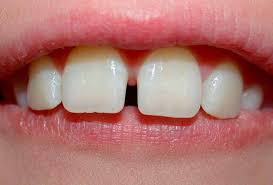As you are celebrating the New Year, you may feel like a change in personal style is needed to spice up your life. Maybe you’re considering a tattoo or a piercing to express yourself. But dentists would generally advise against oral piercings, like tongue piercings. Why? We’ve listed several ways that tongue and oral piercings can impact your mouth.

Infection
Your mouth is the perfect breeding ground for infection due to the constant presence of oral bacteria. Not all bacteria are bad; some bacteria are healthy and needed in your mouth. However, these bacteria can still contribute to an infection around the piercing several weeks after your tongue (or other oral surfaces) has been pierced. If the infection is not dealt with immediately, there can be serious long-term consequences. The infection can even be life-threatening (especially to people who suffer from heart disease).

Teeth Cracking and Chipping
You may not realise it but your tongue has habitual contact with your teeth throughout the day. It would be very easy for your tongue piercing to bump up against your teeth, particularly your front teeth. This constant contact will be most apparent to you when you talk, eat, and swallow.
With this constant contact, you seriously risk damaging the tooth enamel by chipping away the outer layer and exposing the sensitive inner dentin. If you accidentally bite down on the piercing, you risk cracking or fracturing teeth and/or fillings. Depending on the depth of the crack, your cracked teeth may not be saveable. Tongue piercings can also scratch and damage soft oral tissue (potentially to the point of contributing to long-term gum disease).

Tooth Movement
If you get a tongue piercing, it is unlikely you will remove it as your tongue will heal over the hole quickly if a stud doesn’t remain in place. Therefore, the habitual contact of your tongue piercing against the back of your front teeth may cause a diastema (a gap between your two front teeth). The pressure of the contact may force your teeth to loosen in your gums and move out of alignment.

Other Issues and Complications
Bleeding, Nerves and Drooling
There are other risks associated with tongue piercing. The piercing could lead to excessive blood loss as the tongue contains a lot of blood vessels. If it is not professionally done, the piercing can go through the central nerve of your tongue; you may lose all sensation in your tongue for the rest of your life. The piercing may also result in an increase of saliva production and thus cause you to drool.

Swelling and Swallowing
In the weeks immediately after the piercing, your swollen tongue may lead to trouble breathing (or your tongue may even block your windpipe). Furthermore, if your tongue piercing breaks off and you accidentally swallow the broken pieces, they may cause you to choke.
Metal
Keep in mind that not all oral piercings are done with metal – bioplast or other materials may also be used as a suitable alternative.

However, if you are going to get a metal piercing, make sure the metal has been properly sterilised. A non-sterile metal stud may lead to contracting HIV, hepatitis B or C. Furthermore, be aware of any allergies you may have to specific metals. Tongue piercings will also make taking dental X-rays very difficult as the X-ray picks up on any metal or plastic in your mouth.

General dental advice is, if you can help it, try not to get an oral piercing. However, if you went ahead and got one anyway, don’t worry! There are steps you can take to take care of your oral piercing and we will explore these in our next blog, Tongue Piercings (Part 2): What To Do If You’ve Got One, so stay tuned.
